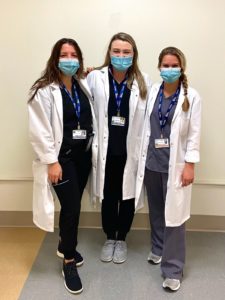Too often, SNF speech therapists function in silos. Part of the reason is that Occupational and Physical Therapists often have a great deal of overlap and frequently collaborate. Conversely, speech therapy will function independently & drift away from the team. Key performance indicators are not closely monitored by management.
The medically complex patients being treated in SNFs today require an interdisciplinary approach. For a SNF speech therapy department to be great, they need to function as part of the team. The SNF has a great deal at stake in terms of improved patient outcomes and valuable PDPM reimbursement in the SLP Component.
Whether your speech-language pathologist is an employee or from an agency, there are 3 ways to know if they are truly functioning as an integral part of the interdisciplinary team.
Relationship with Dietary, Nursing and MDS:
How is the relationship between speech therapy and these 3 key departments? Do they meet regularly and communicate effectively? Knowing what is going on with the patients can help ensure the proper speech therapy interventions and prevent re-hospitalizations. The speech therapy department in a skilled nursing facility needs to ensure patients are on the safest & least restrictive diets. To do that, the insight of dietary and nursing is necessary while MDS needs to be involved for proper coding.
PDPM Communication:
The SLP component is a key part of PDPM with a great deal of dollar variation from top to bottom ($15.75 for an SA to $97.50 for an SL). Therefore, the accuracy of coding is essential. Bringing the unique perspective of speech to the table can help improve the accuracy of diagnosis coding, BIMS, and section K. These important items improve overall reimbursement.
Contribution to Part B Revenue & Case-Mix:
Great SNF Speech Therapists shine in treating the long-term care population. Does your speech caseload have the right mix of short- and long-term patients? By communicating with other members of the team, speech therapy receives valuable insight into long-term care residents in need of speech. These interventions are both good for the patient and positively impact Part B revenue and case mix.
If speech therapy is functioning in a silo, these patients are all too frequently missed.
A well-run speech therapy department can be a real asset to the SNF in many ways. Investing the right resources into speech therapy and knowing what to look for can make your SNF speech department a winner.
Want to find out more? Contact us for more information or a free analysis of your speech department.



